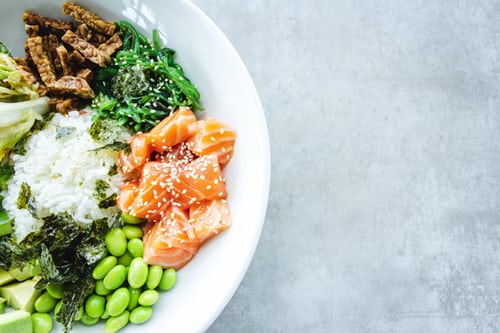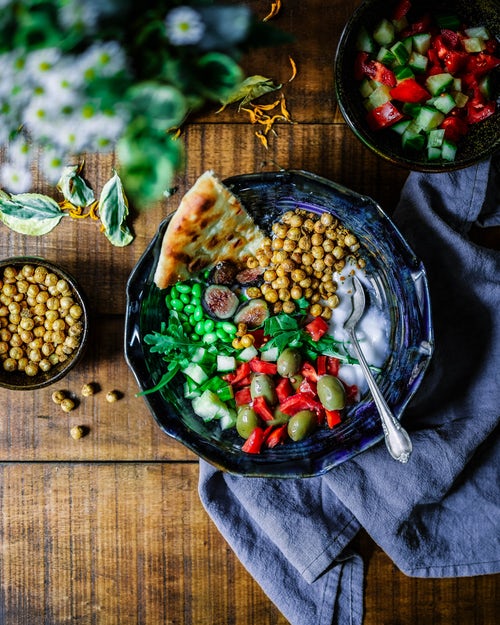Well, the results are in, and you may not like what they have to say about your favorite diet.
U.S. News & World Report loves to provide “Best” rankings for a slew of categories, such as doctors in every specialty and colleges. Now their panel of experts has weighed in (no pun intended) on what they have whittled down to the top 35 diets overall. You might be surprised to learn where your particular diet lands on their favorite list. I’ll cover the top 5 only, and then tell you how the popular Keto ranks and why, but you can go to the link at the bottom of this post to see all 35 diets.
How the top 5 diets rank and why?
Okay, here’s number 1.
Drum roll, please. Brrrrrrrr….
-
Mediterranean Diet
No real surprise here. This diet has been studied and emulated for years. But which country bordering the Mediterranean are they following the recipes and food of? They all tend to eat slightly different foods.
I think by now most people know that people that live in this part of the world consume good oils—like olive oil and good fats that primarily come from fish, but other key take-aways to any Mediterranean diet are that these people:
- Have active lifestyles
- Eat in a way that helps control weight
- Consume low amounts of meat, sugar and saturated fat
- Eat a lot of produce, nuts and other healthful foods
- Eat primarily organically-grown fruits and veggies (that come from smaller or personal farms)
If you’d like more information on what foods to eat in what amounts, see the consumer-friendly Mediterranean diet pyramid developed by experts in a Boston food think tank.
(Who knew there was such a group!)
This diet was also awarded kudos for being nutritionally sound and having diverse foods and flavors.
-
DASH Diet
Okay, I must admit I’d never heard about this diet, which stands for Dietary Approaches to Stop Hypertension. But evidently it’s known for fighting high blood pressure and its nutritional completeness, safety, ability to prevent or control diabetes, and its role in supporting heart health.
It emphasizes:
- fruits
- veggies
- whole grains
- lean protein
- low-fat dairy
It turns its thumbs down on:
- fatty meats
- full-fat dairy foods
- tropical oils
- sugar-sweetened beverages and sweets
Under the pro category, this diet was noted for being heart healthy and nutritionally sound.
-
The Flexitarian Diet
Here’s another one I’d never heard of, which came about in 2009 when dietitian Dawn Jackson Blatner published her book The Flexitarian Diet: The Mostly Vegetarian Way to Lose Weight, Be Healthier, Prevent Disease and Add Year sot Your Life.
This diet—which is the marriage of flexible and vegetarian—emphasizes fruits, veggies, whole grains and plant-based protein. But Ms. Blatner says you can be a vegetarian most of the time but still enjoy an occasional fatty burger or steak when the urge strikes.
It was noted for its flexibility and abundance of tasty recipes.
-
WW (Weight Watchers) Diet
Weight Watchers has done a good job evolving with the times and bringing their diet up to the modern research. It scored highest for overall weight loss and fast weight loss. But WW is also focusing on healthy living and overall well-being.
A big plus to the WW diet is the support system, via in-person accountability and support workshops and on-line or phone chats. The support people are trained in behavior weight management techniques.
With no foods being listed as off-limits, this diet scored big for being able to eat what you want, and for the flexibility in shaping your own diet.
-
Mayo Clinic Diet
I did this diet as a high school junior. Way back then, it focused on very high protein meals, with eggs and meat being the centerpieces. I lost a heap of weight in two weeks, in time to be a bit more svelte for the National Gymnastics Championship.
Now it focuses on making healthful eating a lifelong habit. It also earned high marks for its nutrition and safety.
Mayo’s diet is focused on helping you get your eating habits straightened out and breaking bad habits and replacing them with good ones. They also have their own unique food pyramid, which emphasizes fruits, veggies, and whole grains, which allows you to eat more while taking in fewer calories.
According to Mayo, someone on the diet can expect to lose 6 to 10 pounds the first two weeks (!), a lot of which I would expect to be water, and then 1 to 2 pounds weekly until you’ve hit your goal weight. I’m not sure what you do when you hit it, but that is probably in the book.
The 6 to 10 pounds seems like a lot to me. I’ve read a lot of information cautioning people against losing that much weigh that rapidly—for heart reasons, and also for the inclination your body has to reset your calorie point to a lower per-day need before kicking into starvation and fat-storing mode with such drastic weight loss.
But they’re Mayo, and they’ve undoubtedly done their research and checked it twice.
It got additional marks for being nutritionally sound and allowing you to shape your diet.
-
MIND Diet (Tied with Mayo and Volumetrics below)
The Mediterranean-DASH Intervention for Neurodegenerative Delay (MIND) is another new one to me, but it’s definitely keeping up with the current concerns on maintaining mental health, as it aims to prevent mental deterioration.
One expert found it to be a healthy, sensible plan backed up by science. (I always love how they throw that in, and then we learn a decade later that “new” science has deleted the old facts.)
What this diet does is take both the DASH and the Mediterranean diets and focus on the foods in each one that specifically affect brain health.
I’m always a little concerned when diets focus too much on one aspect of health, but evidently this diet has been found to reduce Alzheimer’s risk by 35% for people who followed it moderately well and 53% for people who really adhered to it. So I think it deserves a closer look.
It does focus on fewer carbs than is currently recommended by our government guidelines and is known to bring on quick weight loss.
The pro category had marks for its blending of two proven healthy diets and its brain-power boosting focus. The cons were that the diet details were not “fleshed out” and the recipes and resources were slim.
-
Volumetrics (Tied with Mayo and MIND, above)
Penn State University professor Barbara Rolls pioneered this diet, which experts say is really more of an eating approach than a focused diet. It’s designed around:
- learning how to decipher a food’s energy density
- learning how to cut that energy density in meal planning and eating
- making choices that fight hunger
Food is divided into four groups: very low-density, low-density, medium-density, and high-density. You might already guess that non-starchy fruits and veggies would fall into the very-low density category, while crackers, chips, chocolate candies, cookies, nuts, butter and oil fall into the very-high level.
The pro checkmarks for this diet were that it is filling and no food is off-limits. The negatives included lengthy meal prep, and if you don’t like fruits, veggies or soups, sticking with it could be tough.
The list continues with a total of 35 rankings, including Jenny Craig, Nutrisystem, Dr. Weil’s Anti-inflammatory Diet, Dr. Dean Ornish’s Diet, Vegetarian, Vegan The Engine 2 and Paleo.
But where did the Keto diet fall?
In spite of its increasing popularity and the medical attention it’s receiving, experts rated this popular diet near the bottom, at #34, behind Paleo (at 29), and Atkins (32). And even though more research is being done on the effects of this diet, a July 2019 Journal of the American Medical Association Internal Medicine (JAMA Internal Medicine) stated that “enthusiasm outpaces evidence” when it comes to a keto diet having a dramatic effect on diabetes or obesity.
A friend of mine from high school is a keto-type diet aficionado and it has helped her tremendously with her diabetes control and weight maintenance. She said it was such a relief to no longer have to count carbs for her daily glycemic intake measurements. The last time I saw her, she looked healthy and had a ton of energy.
Granted, that’s anecdotal evidence, but it’s important to her and her health. Since it takes a long time to do research, it may be that the evidence is just taking time to catch up.
To see the entire list, read the overviews, and get more information on each of these diets, see the report.
And until next week, (when I’ll tell you about the new diet geared toward people suffering from acid reflux that my husband and I have embarked on),
Happy Dieting!
Andrea
*This list is to serve as general information and not to be intended as an endorsement of any diet plan or a prescription. Always consult with your physician or personal health practitioner before beginning any diet or exercise program.
Andrea Arthur Owan, M.S., A.T., R., is an award-winning inspirational writer, fitness pro, and chaplain. She writes and works to help people live their best lives — physically, emotionally, and spiritually.

